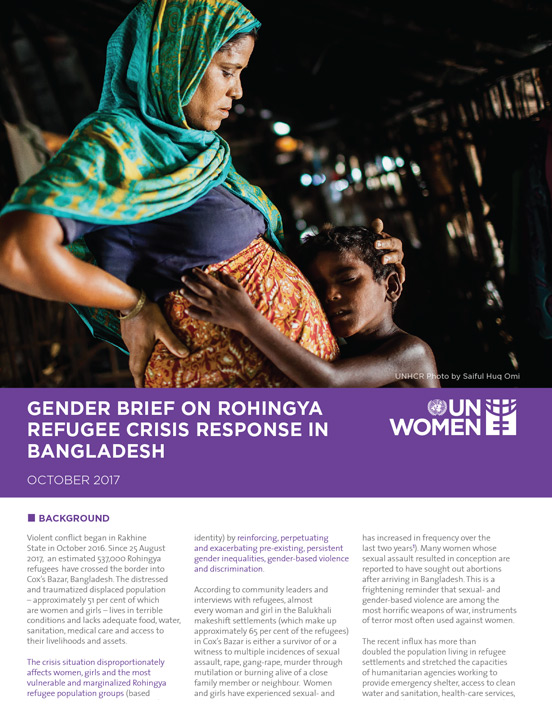
Gender Brief on Rohingya Refugee Crisis Response in Bangladesh

Violent conflict began in Rakhine State in October 2016. Since 25 August 2017, an estimated 537,000 Rohingya refugees have crossed the border into Cox’s Bazar, Bangladesh. The distressed and traumatized displaced population – approximately 51 per cent of which are women and girls – lives in terrible conditions and lacks adequate food, water, sanitation, medical care and access to their livelihoods and assets.
The crisis situation disproportionately affects women, girls and the most vulnerable and marginalized Rohingya refugee population groups (based on gender, age, marital status, sex of household head, mental and physical disabilities, sexual orientation and gender identity) by reinforcing, perpetuating and exacerbating pre-existing, persistent gender inequalities, gender-based violence and discrimination.
According to community leaders and interviews with refugees, almost every woman and girl in the Balukhali makeshift settlements (which make up approximately 65 per cent of the refugees) in Cox’s Bazar is either a survivor of or a witness to multiple incidences of sexual assault, rape, gang‑rape, murder through mutilation or burning alive of a close family member or neighbour. Women and girls have experienced sexual‑ and gender‑based violence, perpetrated by both the Myanmar army and by Rakhine locals (the incidence of this violence has increased in frequency over the last two years1). Many women whose sexual assault resulted in conception are reported to have sought out abortions after arriving in Bangladesh. This is a frightening reminder that sexual‑ and gender‑based violence are among the most horrific weapons of war, instruments of terror most often used against women.